No sweat - the female friends who set up a gym chain
- Published
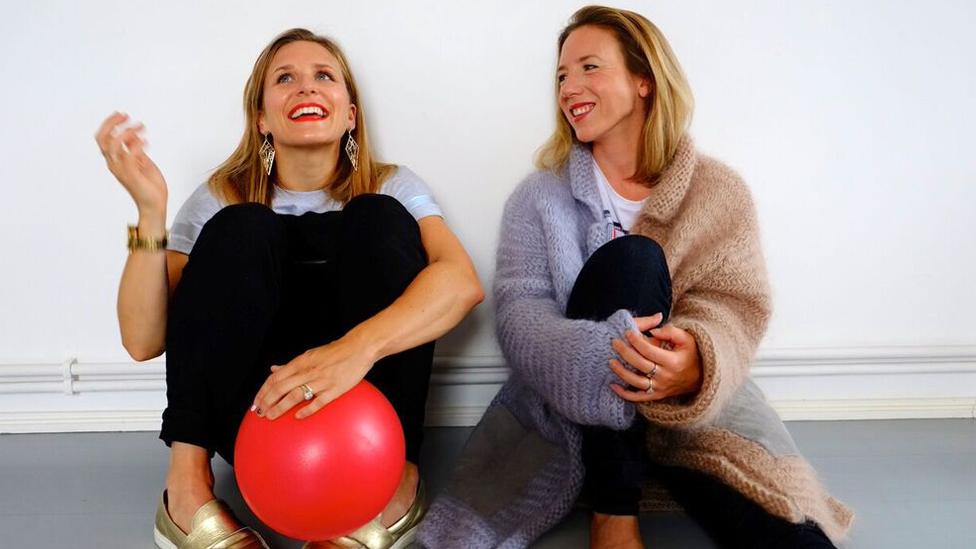
Joan Murphy (left) and Pip Black first met while on holiday
While most of us spend the day before our wedding doing last minute preparations, Pip Black was happily running around London's Victoria Park.
Together with her business partner Joan Murphy, each jogged with their toddlers in front of them in pushchairs.
It's this serious passion for health and fitness that brought the two then-20 somethings together when they met on a trip to Cornwall with mutual friends back in 2007.
Forming a bond over surfing, they lamented what they both saw as a lack of fun fitness options available in the UK capital.
Returning to London, they batted around business ideas during runs in Hyde Park, or over a few gins and tonics after work in the advertising industry, where both were employed. Meanwhile, weekend mornings were spent researching possible locations to open a gym.
Within a month the duo had hatched their plan to create a new type of female-friendly gym called Frame.
The aim was to run energetic and feel-good classes covering everything from dance to "rocket yoga", and "dynamic Pilates".
Their ambition was to radicalise the fitness market, which they felt was staid due to a lack of innovation.
Crux to the strategy was introducing a pay-as-you-go model, giving their customers the flexibility to drop in on classes, such dance sessions as "Frame Rave", "Music Video" and "80s Aerobics", without having any commitment to go to more.
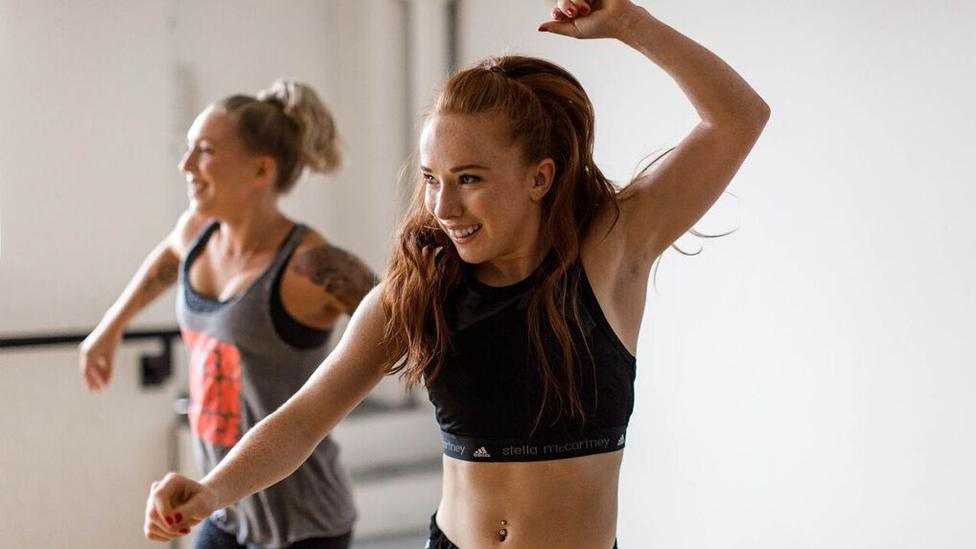
Frame's users are 80% female
Armed with a bank loan, the pair quit their jobs and launched Frame's first gym, or as they call it, "fitness studio", in Shoreditch, east London, in 2009.
"It was all a bit of a whirlwind," recalls Ms Black, 33, a former England hockey player.
"We just clicked. Joan had just returned back from New Zealand [her home country], and had looked at what was happening in the fitness industry there
"And in true Joan style she sucked me in and decided to tell me what we were going to do, which is quite useful in a business partner. I quite like that."
Ms Murphy, 35, says Frame was unique when it started out.
"We were the first multi-disciplined pay-as you-go studio," she says.
"If you wanted to go to Pilates [at a studio] you had to pay up front for 10 classes. There was no fitness pay-as-you-go.
"If you didn't want to buy gym membership because you only wanted to go once or twice a week there was nothing. We wanted to put all the disciplines under one roof and make it accessible."
'Proper start-up'
However, before their venture even got off the ground, Frame faced a major setback.
Days before their Shoreditch venue was set to open, a road closure meant there was no access to the gym.
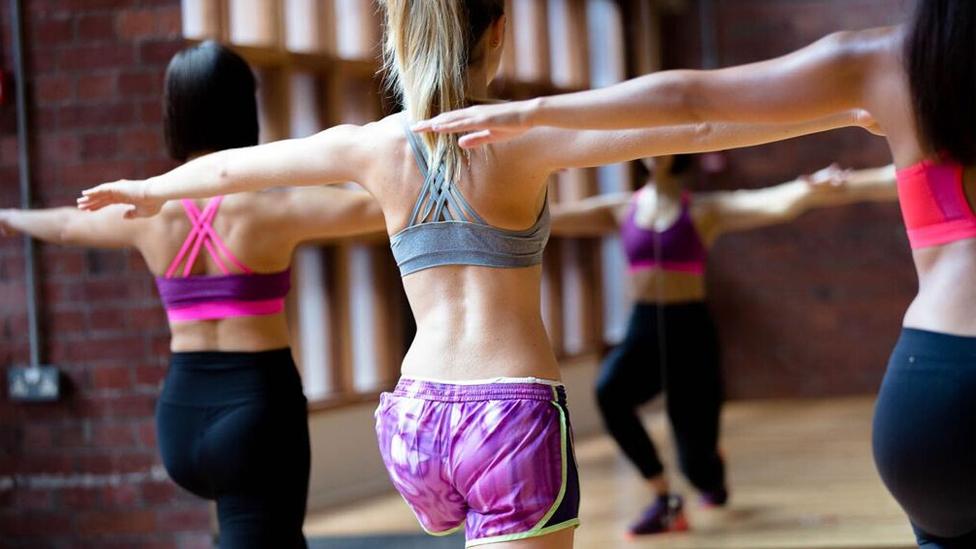
Customers don't have to commit themselves to weeks of classes
"There was no through road," says Ms Black. "So we had to wait six months before opening. We had handed out flyers, recruited teachers."
With the postponement of the fitness studio and bills mounting, they both took temporary jobs - Ms Murphy as a carer for the elderly, and Ms Black looking after children.
When Frame was eventually up and running, both got stuck into the day-to-day operations, each clocking up 30 hours a week either on reception, or as an instructor, on top of running the business.
"We were a proper start-up," says Ms Murphy. "But it wasn't just about starting a fitness business, it was what we wanted to do."
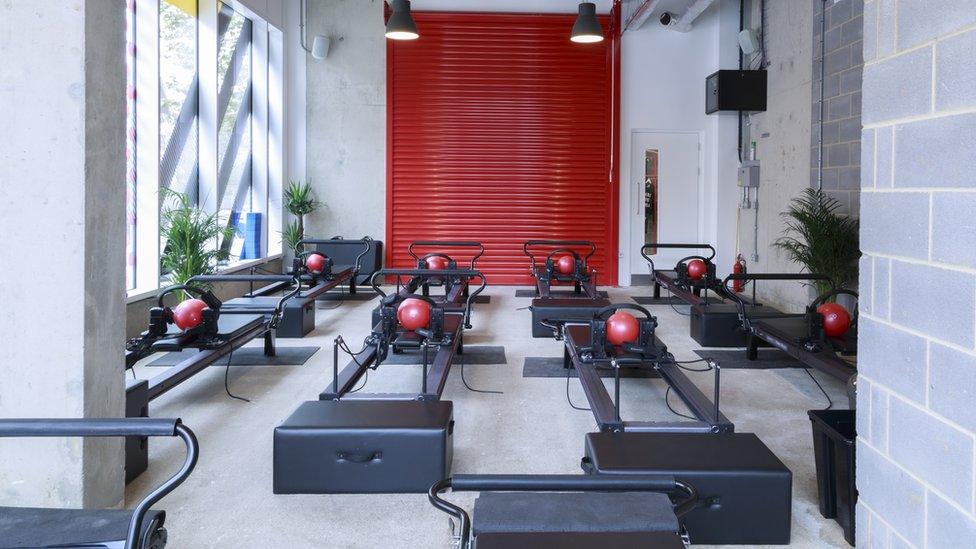
The business now has plans to open gyms across the country
Thanks to positive word of mouth, and some advertising, Frame's customer numbers quickly grew.
Further helped by the continuing growth of the UK health and fitness market, which according to industry figures is now worth £4.3bn per year, Frame has since taken out additional bank loans to open two further London outposts in Queen's Park and King's Cross.
The expanding empire has swelled Frame's turnover to £2.8m in 2015, up from £2.1m on the previous year.
Expansion plans
Opening more gyms is now firmly on the agenda for the two ambitious women, who in December received funding from angel investors.
"We're keen to cut our teeth outside of London, and our growth plans in the long term are quite big," says Ms Black.
The goal is to open two new gyms per year, and mooted first locations include Brighton, Bristol and Manchester. They also currently have a month-long pop-up gym near Old Street tube station, in east London.
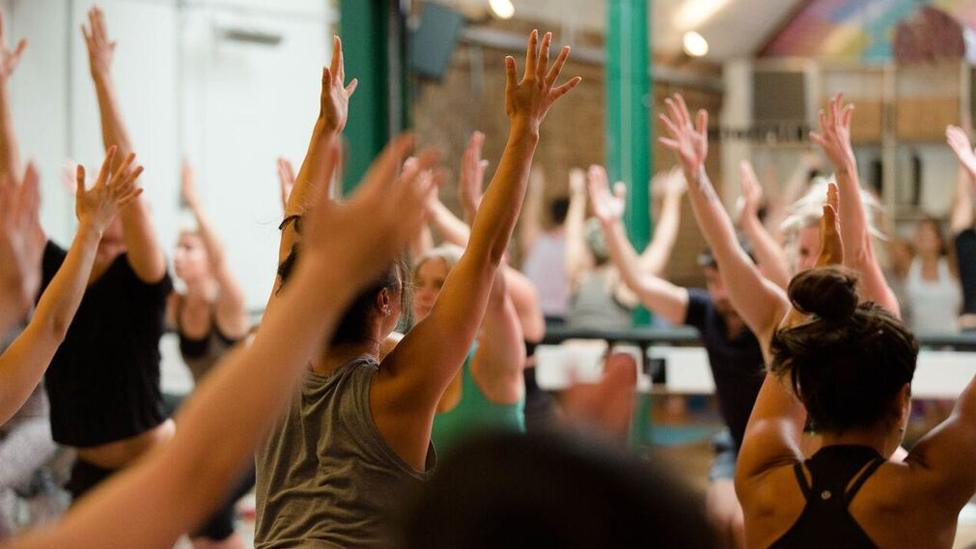
Frame says it aims for its classes to be as enjoyable as possible
Frame has also tapped into other revenue streams, such as having cafes at its venues. There has also been a move into clothing, with a second sportswear collaboration with High Street fashion chain Whistles set to launch in May.
And while women remain the main focus, men can join Frame, and in fact now make up 20% of customers.
Paul Davis, a senior leisure and technology analyst at market research group Mintel, says Frame's success is down to two main reasons - its upmarket offering, and its range of classes.
"Whilst the vast majority of growth in the health and fitness club market can be attributed to the growth of the "no-frills" budget gym sector - city-based fitness boutiques such as Frame look to deliver an elite experience at the other end of the scale," he says.
"By focusing on areas outside of traditional gym activities such as dance classes and post-natal Pilates the studio appeals to a predominantly female demographic, who may not otherwise show an interest in joining a typical fitness club."
But why the name Frame? Ms Murphy says: "It's about a healthy, happy frame of mind, a frame out of your day."
She adds that the company also wants people "to move their frame with us".